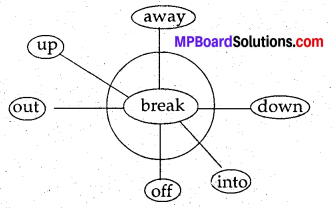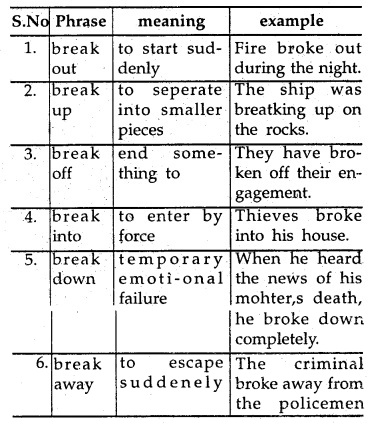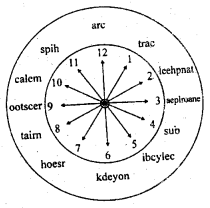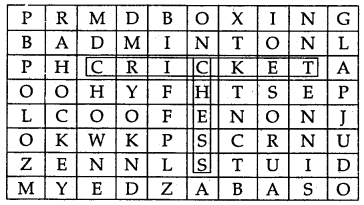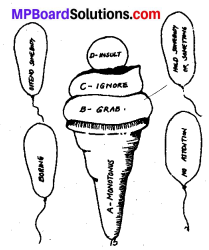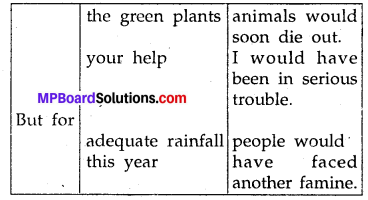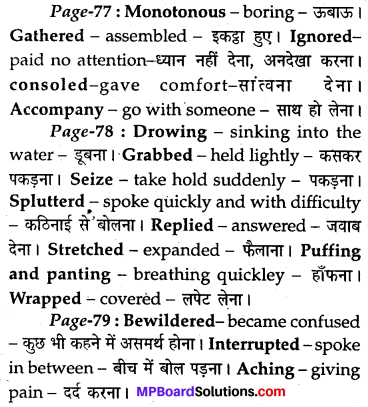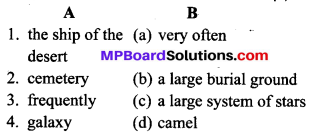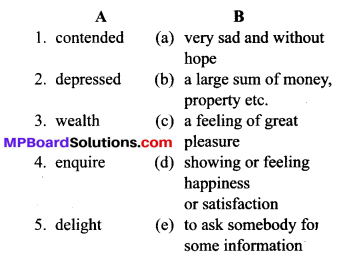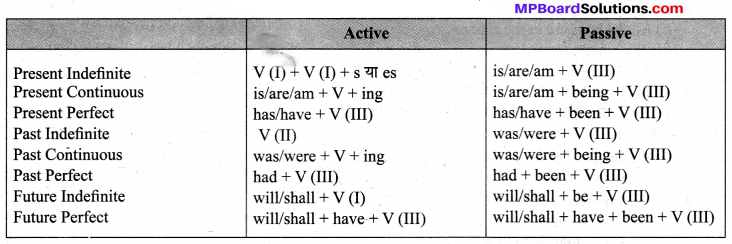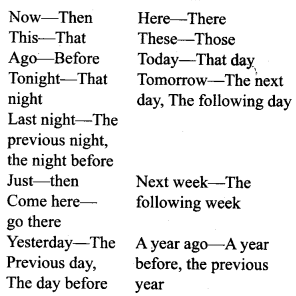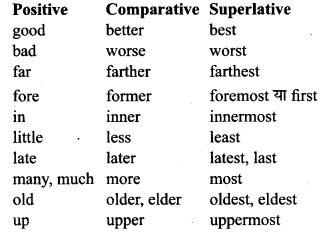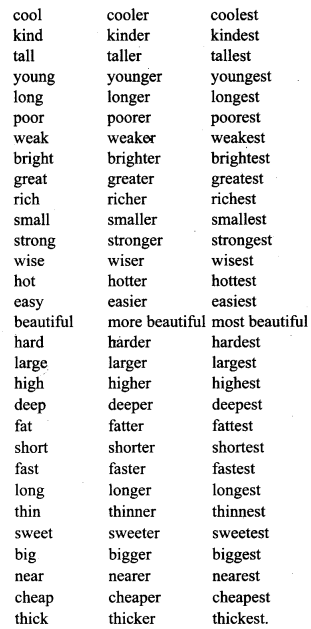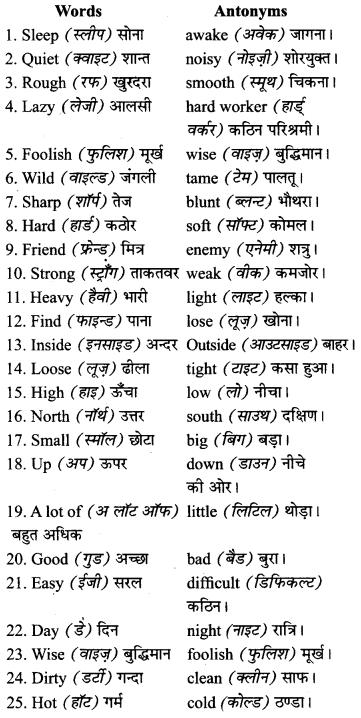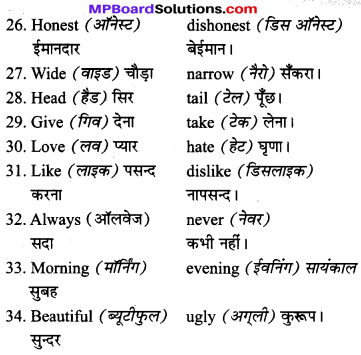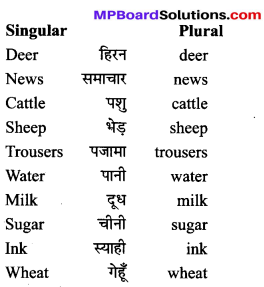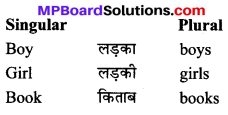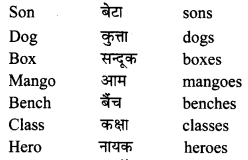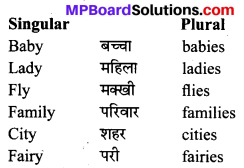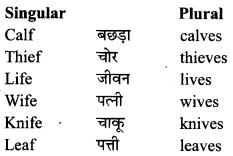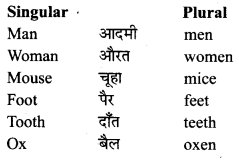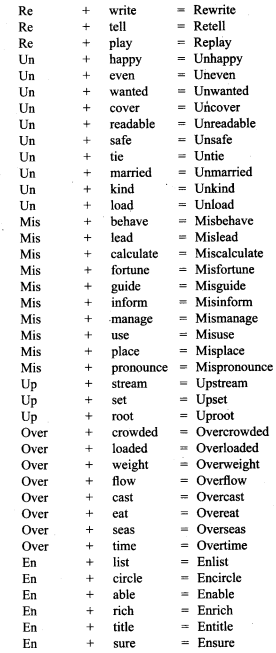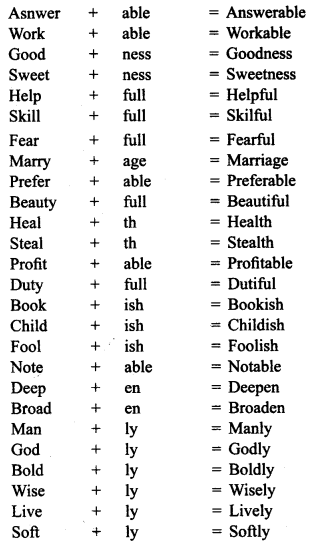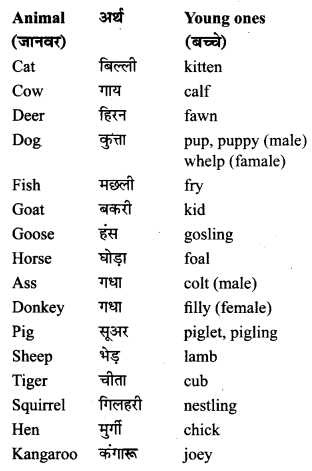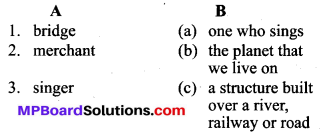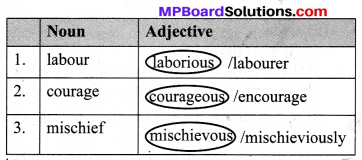Guys who are planning to learn the fundamentals of English can avail the handy study material using MP Board Solutions for Class 8 English Chapter 20 Yoga: A Way of Life Questions and Answers. You Can Download MP Board Class 8 English Solutions Questions and Answers, Notes, Summary, Guide, Pdf. Refer to the Madhya Pradesh State Board Solutions for English PDF available and score better grades. Simply click on the quick links available for MP Board Solutions for Class 8 English Chapter 20 Yoga: A Way of Life Questions and Answers and prepare all the concepts in it effectively. Take your preparation to the next level by availing the Madhya Pradesh State Board Solutions for Class 8 English prepared by subject experts.
MP Board Class 8th Special English Solutions Chapter 20 Yoga: A Way of Life
Do you feel the concept of English is difficult to understand? Not anymore with our MP Board Solutions for Class 8 English Chapter 20 Yoga: A Way of Life Questions and Answers. All the Solutions are given to you with detailed explanation and you can enhance your subject knowledge. Use the Madhya Pradesh State Board Solutions for Class 8 English PDF for free of cost and prepare whenever you want.
Yoga: A Way of Life Textual Exerciese
word Power
(A) Give one word for:
- desire for food – ……………….
- feeling of being tired – ……………….
- Space including planets and starts – ……………….
- mental pressure – ……………….
- the quality of doing something without wasting time – ……………….
Answer:
- appetite
- fatigue
- universe
- stress
- efficiency.
(B) Fill in the blanks using appropriate words given in the box:
practised, back-bencher, personality, noticed, rarely
- Saroj was a ………
- The teacher …………. the problems of Saroj.
- She ……………. laughed and smiled.
- Yoga is being ………….. in our country for centuries.
- Yoga helps in all round development of …………….
Answers:
- back-bencher
- noticed
- rarely
- practised
- personality.
Comprehension
Answer the following questions:
Question 1.
How was Saroj before adopting yoga?
Answer:
Saroj was dull and sick before adopting yoga.
Question 2.
What changes were noticed in Saroj after she started yogic exercises?
Answer:
Saroj started mixing up with other children and showing interest in various activities of the class and the school.
Question 3.
How has yoga helped mankind?
Answer:
Yoga has helped mankind in leading a healthy life. It has also helped in elevating the self to realise God and the mysteries of the universe.
Question 4.
What are the beliefs of the yogic philosophy?
Answer:
The yogic philosophy believes that if we have a healthy body, mind and intellect we can achieve whatever we want to achieve.
Question 5.
Give examples of the deeds of some greatmen who adopted the path of yoga.
Answer:
Gautam Buddha, Emperor Ashoka, Mahavir Swami, Mahatma Gandhi, etc.
- Buddha inspired lakhs of people.
- Emperor Ashoka left the path of violence and adopted Ahimsa, non-violence.
- Mahavir Swami made even the beasts to leave killing other animals.
- Mahatma Gandhi adopted truth and non-violence throughout his life. He made the Britishers leave the country.
Question 6.
What are the bad qualities against which the yogic theory warn us?
Answer:
The yogic theory warns us against desires, anger, greed, attachment and pride.
Question 7.
Write the names of some aasanas and their benefits.
Answer:
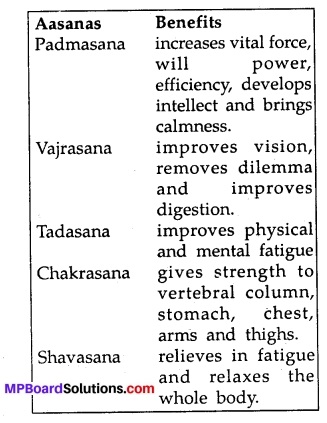
Question 8.
What are the precautions one should take while doing aasanas, pranayam and meditation?
Answer:
The precautions that one should take while doing aasanas, pranayam and meditation are given below:
- They should be done under expert guidance.
- They should be done on empty stomach.
- Take breath only through the nose.
- Use a blanket or bed sheet under the body.
- Wear loose clothes.
- Relax between the aasaanas.
- The best time for aasanas is morning or evening
- Don’t take bath immediately after the aasanas.
- Don’t try to make any posture forcefully or don’t compare your posture with anybody else’s.
Let’s Learn
We use an active verb to say what the subject does:
Example – My father writes stories.
We use a passive verb to say what happens to the subject:
Example – Stories are written by my father.
See the changes in the following sentences:
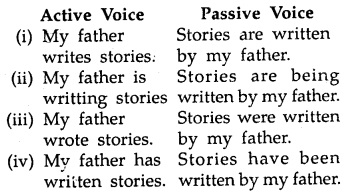
- As in the examples, all the sentences in active voice have ‘doer subjects, “My father”, while changing the sentences into passive voice the objects are brought to the place of the subject and the doer subjects are shifted to the place of object. Now the focus is on passive subjects.
- Another important change is the use of III form of the verb that is past participle in passive voice along with appropriate form of verb ‘be:
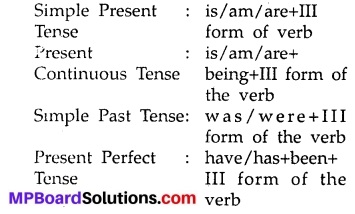
Now solve the exercises given below:
(A) Here is a table. Make sentences from it making suitable changes as shown in the example.
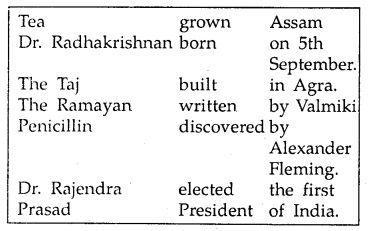
Example: Tea is grown in Assam.
- ……………..
- Dr. Radhakrishanan was born on 5th September.
- The Taj is built in Agra.
- The Ramayan is written by Valmiki.
- Penicillin was discovered by Alaxander Flemming.
- Dr. Rajendra Prasad was elected the first President of India.
(B) See the pictures and write sentences as given in the example:
verbs: fed, read, ploughted, repaired, watered
- The birds are being fed by the girl.
- A book is being read by the boy.
- The field is being ploughed by the farmer
- The scooter is being repaired by the mechanic.
- The plants are being watered by the girl.
Let’s Talk
Sit in groups of three. First student will ask a question as in column ‘A’, the second student will make reply as in column ‘B’ and the third student will make the same reply changing the voice of the sentence as in column ‘C:
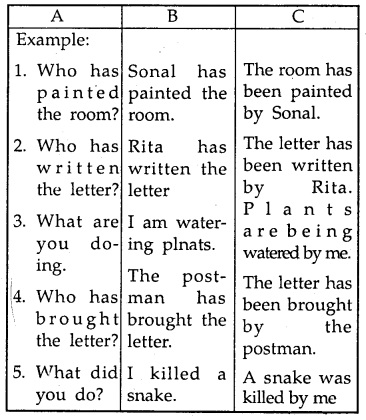
Let’s Read
Read the passage carefully and answer the questions given below it:
Surya Namaskar : A Complete Exercise
As the title suggests Surya Namaskar is a complete exercise in itself. It is a set of aasanas. It has seven postures. All the seven postures, if rightly done with proper breathing, are capable of strengthening the whole body. Surya Namaskar increases life span and even checks untimely death, “Akaal Mrityu Harnam” as mentioned in the scriptures. The proper time for Surya Namaskar is just after dawn. Praying the Sun in these postures fills the body with solar energy which gives us precious vital force for life. Chanting various names of the Sun adds other benefits also.
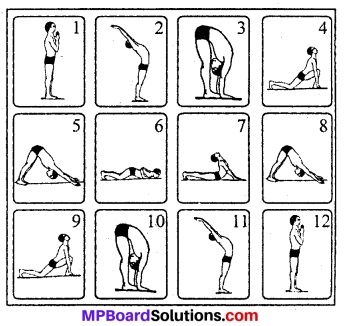
Question 1.
What is Surya Namaskar?
Answer:
Surya Namaskar is a complete exercise in itself. It is a set of aasanas.
Question 2.
What benefits can we have from it?
Answer:
Surya Namaskar increases life span and even checks untimely death.
Question 3.
What is the meaning of “Akaal Mrityu Harnam”?
Answer:
Akaal Mritya Harnam means untimely death.
Question 4.
When should we do Surya Namaskar?
Answer:
We should do Surya Namaskar just after dawn.
Question 5.
Give any other title to the above passage.
Answer:
Advantages of Surya Namaskar.
Yoga: A Way of Life Word Meanings
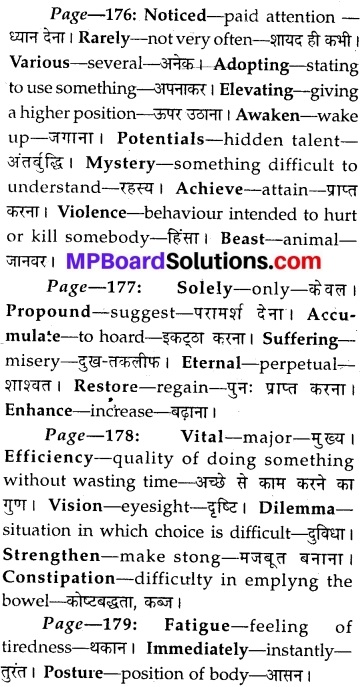
We wish the knowledge shared regarding MP Board Solutions for Class 8 English Chapter 20 Yoga: A Way of Life Questions and Answers has been helpful to you. If you need any further help feel free to ask us and we will get back to you with the possible solution. Bookmark our site to avail the latest updates on different state boards solutions in split seconds.
